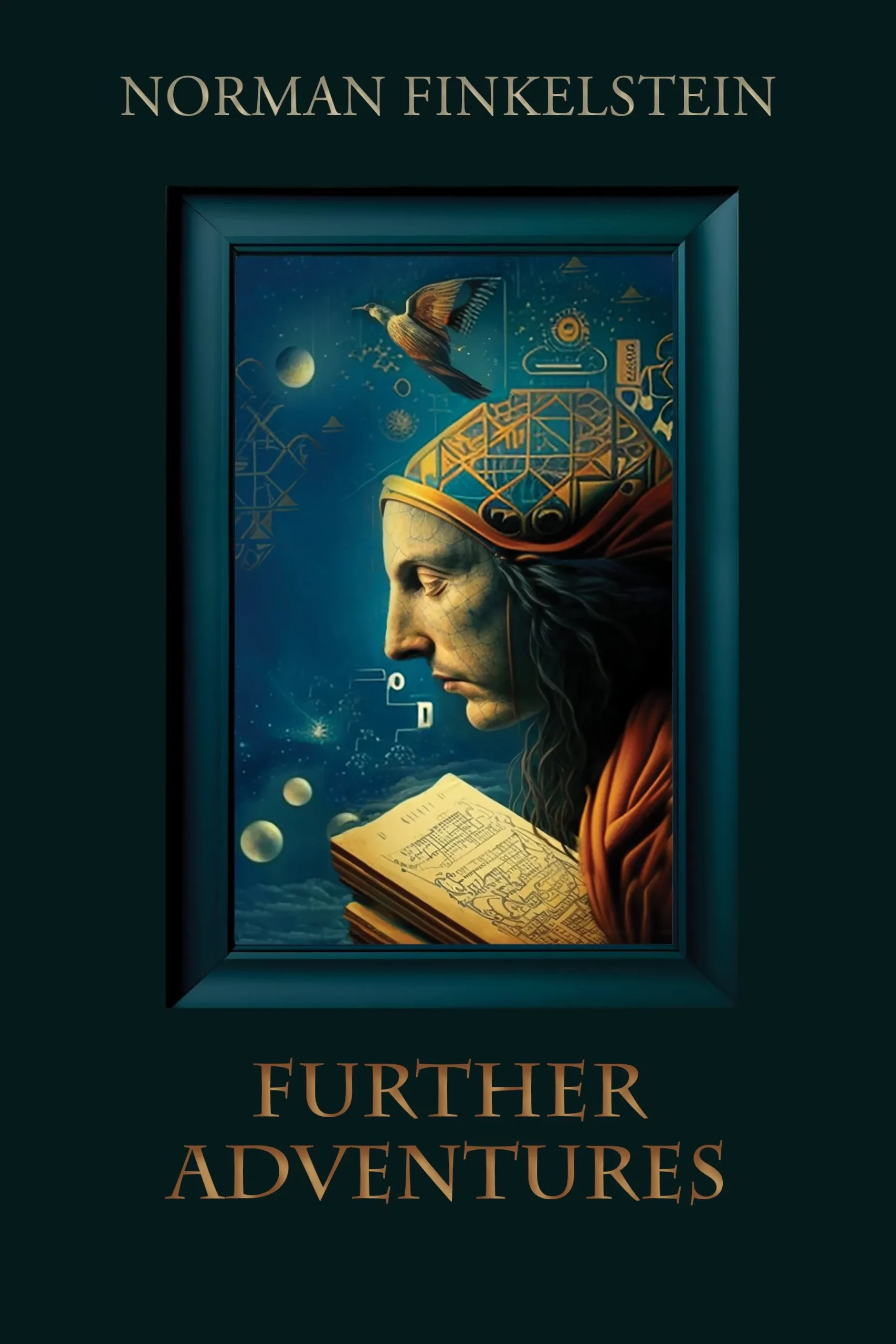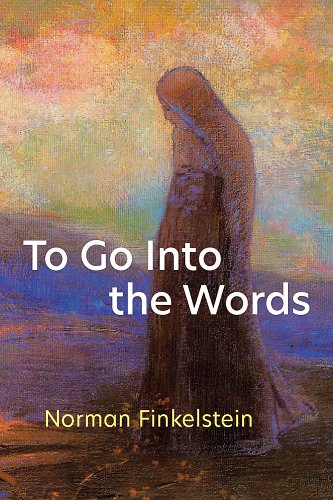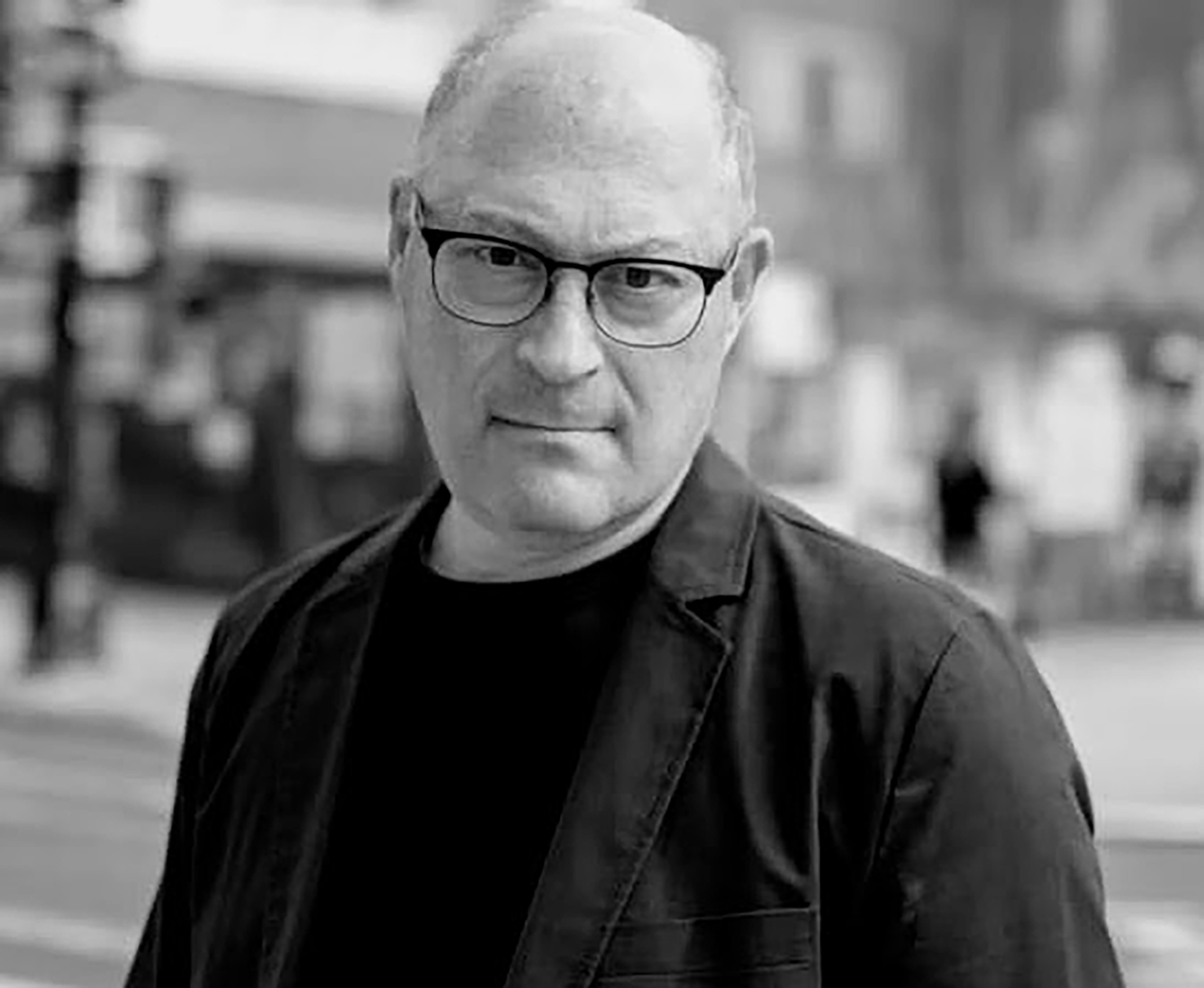by Joe Safdie
In 2018, Norman Finkelstein published an odd collection of poetry titled From the Files of the Immanent Foundation—odd in that it detailed the history of a secret organization as bureaucratic as it was gnostic, “a network of spies and secrets, / an infinite arcanum of hierophants and fools.” In a Broken Star followed in 2021; this book introduced the character of Pascal Wanderlust, who both is and isn’t the subject of a quest narrative. Now a third book, Further Adventures (Dos Madres Press, $23), completes the trilogy, weaving connections between Pascal and the Foundation.
Finkelstein’s oeuvre has always been “sensitive to the overlapping traditions of Jewish mysticism, radical poetics and post-modern thought,” as J. Peter Moore wrote in a collection of essays about his expansive body of work. Finkelstein has published thirteen books of poems and six volumes of literary criticism, and is a professor emeritus at Xavier University, where he taught for forty years. One of his central themes, according to the Poetry Foundation, is “the tension between secular and religious world views”—a subject that he discusses, among others, in the interview below.
* * *
Joe Safdie: Norman, thanks for doing this. I want to talk mainly about Further Adventures, but I don’t think that’s possible without talking a bit about the two books that preceded it, From the Files of the Immanent Foundation and In A Broken Star. My first question involves that word “further”: when did you know that you weren’t quite finished with this journey, and is there a chance that it’s still not finished? You say in the Afterword that time itself is a problem in this poetry: Is there a difference in how narrative time is structured in this book from what was established in the previous two?
Norman Finkelstein: When Further Adventures appeared, I was fairly sure the story of Pascal and the Immanent Foundation was done. But recently, I’ve returned to it, perhaps out of a desire to fill in some of the gaps in the narrative. In any case, my experience in writing these poems has been similar to my experience in writing Track. I thought that Track was over once the first volume was published, but months later I found myself writing what became Columns, the second volume. At a certain point I knew there would be a third, and I also understood that it would not be interminable (as, say, Nathaniel Mackey’s work seems to be). So I thought From the Files was one book, and in a sense it still is—it can be read as a stand-alone work—but when The Adventures of Pascal Wanderlust came to me, I gradually realized that Pascal had something to do with the Immanent Foundation. I wanted to return to that world and somehow pull it all together. Hence Further Adventures, which is both prequel and sequel to the earlier books.
As for “narrative time” in this work, well, it’s tricky. By the end of Further Adventures, we can see that there is a definite narrative arc, a chronology. Pascal’s story intersects that of the Foundation at various points in time. But I also think that events in the poems occur in a phantasmagoric version of what Walter Benjamin calls jetzeit, “now time,” time at a standstill that has transformative, explosive potential. And there is also mythic time, cyclical time: Characters are themselves, but also avatars. There are archetypal resonances. There’s a forward trajectory but also a constant movement backward, a return to origins.
JS: In the Afterword to Further Adventures, you mention the 12 x 12 form (twelve stanzas of twelve lines each) as an instance of your “stanzaic numerology.” Could you say something more about form in this book, and in your work generally?
NF: Obviously I’m not a “formalist” as that term is conventionally understood. I’m acutely aware of measure, of end stop, enjambment, caesura, but most of my work doesn’t “scan” in terms of standard English meters. I love rhyme, but I use it sparingly, and when I use it, it tends to be off-kilter. But I’ve always been, if not a formalist, a structuralist. “Stanzaic numerology” is a notion I keep in mind that helps me structure my poetry. I first became aware of it writing Track, where lines, stanzas, and sections are all “magically” determined by recombinatory numerical procedures. “Stanzaic numerology” is fundamental to my shaping of verse, from couplets, tercets, and quatrains to more indeterminately formed poems in cyclopean and granitic blocks, in which many voices can be contained. Song and sculpture. Even as far back as my first book, Restless Messengers, I was deliberately riffing on the structure of the Romantic ode.
I believe in what Robert Duncan calls the “form of forms.” But the Objectivists are also important to me, and following them, I tend to dislike poetry that sprawls. Writing Further Adventures made me acutely aware of the productive tension between lyric and narrative, or in operatic terms, aria and recitative. So, I move among many possible structures, guided by voices, sensing what’s called for, and paying careful attention to what used to be called “numbers,” poetic units.
JS: Well, as Pope wrote, “Most by numbers judge a poet’s song.” Now that we’ve covered “Further,” how about “Adventures”? You recall Pascal’s aphorism “All of humanity’s problems stem from man’s inability to sit quietly in a room alone,” but much of the adventure of this narrative happens in a room like that, doesn’t it? Do you see this as mostly a philosophical inquiry à la Gnosticism—or is the quest simply to keep going, to write the next poem?
NF: The search for gnosis implies a quest, but it’s not a search for the Grail, or for transcendence—though in the Pascal poems, there is always a sense of going “beyond.” I suppose you can say it’s a philosophical or spiritual inquiry, but that sounds too abstract for me. In Further Adventures, we learn that Wanderlust came into being as a failsafe, and has a mission—restore the Immanent Foundation if, as proves to be the case, it is destroyed (or implodes). But Gnosticism involves seeking self-knowledge, thus our hero’s understanding of psychic being constantly grows, even if many episodes reveal Wanderlust to be something of a schlemiel.
Where does all of this take place? Not only in Pascal’s room or mind—this is, after all, a series of adventures. I have any number of models, from The Fairie Queene to Epipsychidion to “The Comedian as the Letter C” to Song of the Andoumboulou. Arthur Green calls the Zohar “sacred fantasy,” a term that can apply to my work, and that of quite a few other poets who are writing quest-romance.
JS: There’s a certain “boys’ life” feeling about some of this narrative. In the Afterword, you mention Lovecraft and Neil Gaiman, and even, in connection with Augustus Sprechenbaum, the Marvel Comics character Dr. Strange. I wonder who else you may be conjuring here (or, as you say, “data mining”), and how these many voices correspond with Pascal’s late desire “to be free of all the ghosts.” You’re obviously paying homage, but is there also something else going on?
NF: Allusion has always been crucial to my poetry. Wallace Stevens says that poetry is the scholar’s art, and I’m all in. For a long time, I have thought of my work as a poetry of commentary, and the midrashic impulse is essential—it generates meaning, and I hope my readers are willing to play along. And I’ve come to move between “high” and “pop” culture. Some years ago, Mark Scroggins and I were imagining a mash-up of the life of Hart Crane with Lovecraft’s The Shadow Over Innsmouth, merging Crane and the narrator of that story to make a single character; that made its way into the story of Bob and Pete in Further Adventures. Now who is going to figure that one out? But if they do, I think it will add to the pleasure of the text. Then there’s the Guide; at some point I realized that he bears a striking resemblance to the Silver Surfer. So, Pascal might wish to be free of all the ghosts—I think, psychoanalytically, we all do—but it’s impossible. Poets make use of that, and I love the haunted quality of poetry.
JS: Getting back to quest narratives briefly, though, who is the villain here? The Foundation was certainly nefarious, but is there an antagonist against whom Pascal and the others play out their complexities?
NF: In these poems, the antagonist lies within the self. That’s the case for Wanderlust, and even for the Foundation, an overreaching, schizoid organization if ever there was one. We are the Deep State, and our task is to go ever deeper. I wrote much of From the Files while doing my training analysis at the Cincinnati Psychoanalytic Institute. Consider the implications!
JS: I think I’ll refrain from that task, thanks! But psychoanalysis brings up the question of autobiography, and there are more than a few passages where I thought you were writing about yourself—most obviously as the “arch-mage” in the prologue, but at other times as well. In what sense (or in how many senses) is Pascal Wanderlust you, and in what sense is he an invention of (or an adventure in) narrative? Is he or you “the poet”? The narrator? The Accountant?
NF: I have thought about the place of the self in the poem for a long time. For me, poetry, even lyric poetry, is not primarily self-expression, and I could cite a number of poets who variously attest to this. Look, for example, at the beginning of Yeats’s “A General Introduction for My Work.” For Yeats, the poet “is never the bundle of accident and incoherence that sits down to breakfast; he has been reborn as an idea, something intended, complete.” I consider that an aesthetic ideal, so I try to write a richly affective, intellectually curious poetry that is not mainly about the self. To be sure, there is something of me in Pascal, in Sprechenbaum, in the Accountant, and so on, just as there are parts of novelists in their characters. And I deliberately inserted a voice, or figure, of “the poet”; he mentions himself at various points. The one character I am not, however, is Sprechenbaum’s cat—he is based entirely on my cat, Kitzel.
JS: I’m sure Kitzel appreciates it. I also wonder about oppositions: Pascal is both male and female (like the king and queen in the alchemical beaker?), but as you’ve said, the “adventures” might be internal as well as external; I sense as well an argument between Gnosticism and skepticism, an “Interminable / internal debate” as you have it in “Behind Every Poem.” Does Blake’s “Without contraries is no progression” come in here at all? It’s probably naive to think about resolution of any kind these days, but this is narrative poetry: does it just circle around, wandering in time?
NF: I interrogate several binaries in Further Adventures, and gender is only the most obvious of them. A debate between Gnosticism and skepticism? Maybe idealism and empiricism, or imagination and reason. The ratio of reason to magic, to borrow the title of my selected poems—my work has always measured that. Blake’s notion of contraries is certainly operative; I think of my poetry as dialectical, or dialogical. The narrative may come to an end, but the commentary never does.
J S: Thanks for doing this, Norman; I read all three books with great pleasure, and hope they find a wide audience. I have one more question for you, because your latest book of essays, To Go Into the Words (University of Michigan Press, $34.95), has just been published as well. Do you feel any tension between writing poetry and critical prose? Is there a state of mind that seems more conducive to one or the other?
S: Thanks for doing this, Norman; I read all three books with great pleasure, and hope they find a wide audience. I have one more question for you, because your latest book of essays, To Go Into the Words (University of Michigan Press, $34.95), has just been published as well. Do you feel any tension between writing poetry and critical prose? Is there a state of mind that seems more conducive to one or the other?
NF: To Go Into the Words is a selection of my essays, mostly on contemporary poetry, going back to the 1980s. I’ve always been a “poet-critic”: after all, I have a doctorate in English; I was trained as a literary scholar; and I enjoy writing about poetry. As a poet, I have always felt a need to examine the work of my contemporaries and predecessors in an effort to understand its importance to me. What in the work resonates for me? What can I learn from it? If the qualities I admire in the work inspire me, I want to explain those qualities to other readers, so that they too can appreciate them. This is also why I started Restless Messengers, my poetry review blog. I want to argue for the importance of certain poets—why I think they should be read.
My poetry and my criticism are often in creative tension. I’ve written two books about Jewish American poetry, and Jewishness, of course, is a deep current in my poems. Track is in dialogue with On Mount Vision, my critical book on contemporary long poems that deal with the sacred. And there’s also this: When the poetry is lying fallow, I can usually manage to write critical prose. I can continue to think about poetry even when I’m giving my own work a rest. Then the time returns when I feel something stirring, I hear a promising phrase. And it’s back.
Click below to purchase this book through Bookshop and support your local independent bookstore:
Rain Taxi Online Edition Winter 2023-2024 | © Rain Taxi, Inc. 2024

